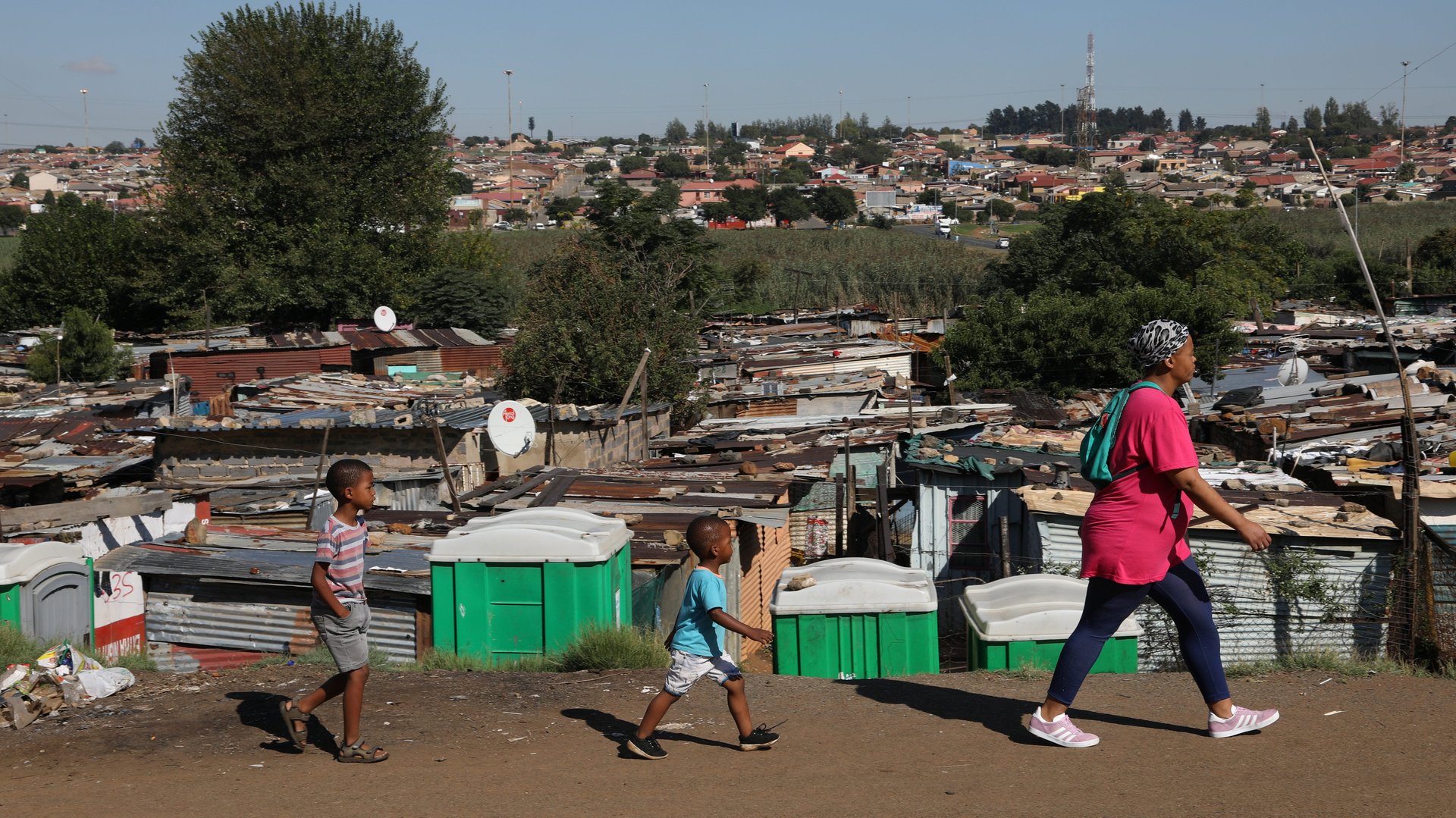South Africa’s poor face a health and safety quandary as the country goes into coronavirus lockdown
In a televised address delivered on the evening of Mar. 23, president Cyril Ramaphosa announced a national lockdown and implored South Africans to make basic changes in individual behavior and hygiene in order to minimize the spread of coronavirus.


In a televised address delivered on the evening of Mar. 23, president Cyril Ramaphosa announced a national lockdown and implored South Africans to make basic changes in individual behavior and hygiene in order to minimize the spread of coronavirus.
“We are therefore once more calling on everyone to wash hands frequently with hand sanitizers or soap and water for at least 20 seconds; cover our nose and mouth when coughing and sneezing with tissue or flexed elbow; avoid close contact with anyone with cold or flu-like symptoms.”
The country is now preparing to go on lockdown from Mar. 26, however South Africa’s notorious disparity in living standards could impede the government’s attempts to flatten the curve and avoid a health crisis.
Given its high Gini co-efficient, measuring the huge gap between the haves and have-nots, South Africa is in a sense comprised of two separate countries.
Restrictions on movement and instructions on social distancing have been applied nationwide, but they’re logistically almost possible to follow for a significant portion of the population.
For residents in townships like Makause in Ekurhuleni or Khayelitsha in Cape Town, health and sanitation have always been a challenge.
Communal taps, shared ablution facilities and open sewerage have been a health risk for decades; causing disease and diseases.
With South Africa having recorded 554 positives cases by Mar. 24—now the highest in Africa, messages such as those about the importance of washing hands for 20 seconds, are increasing in frequency and fervor.
People living in Endlovini, which is known as one of the world’s five biggest slums, may want to adhere to these guidelines. But when an estimated 20,000 of them share around 380 communal toilets and only a few taps, even basic hygiene will be difficult to achieve. Many families live in circumstances where up to 10 people share a room making the concept of social or physical distancing a fanciful one. It’s a scenario that plays out in fast-growing urban areas across Africa and will likely make the transmission of coronavirus difficult to manage.
South Africa’s first reported case of coronavirus was a 38-year-old man from KwaZulu-Natal who tested positive after he returned home from Italy.
Since then, various measures have been put in place to contain the spread of the virus. These have included closing down schools, blocking international visitors and banning gatherings of more than 100 people.
Now under the imminent lockdown, South Africans are expected to stay at home, except for people in a few exempted categories.
Ramaphosa explained without decisive action, the number of people infected will rapidly increase from a few hundred to tens of thousands, and within a few weeks to hundreds of thousands. South Africa has the world’s largest population of HIV carriers and is taking extra steps to protect them from the coronavirus.
“This is extremely dangerous for a population like ours, with a large number of people with suppressed immunity because of HIV and TB, and high levels of poverty and malnutrition.”
While it may have been a nationwide address and a lockdown stipulation to which all residents must adhere, in townships and informal settlements staying at home will put more poor people at risk of contracting and then transmitting the virus.
Sign up to the Quartz Africa Weekly Brief here for news and analysis on African business, tech and innovation in your inbox